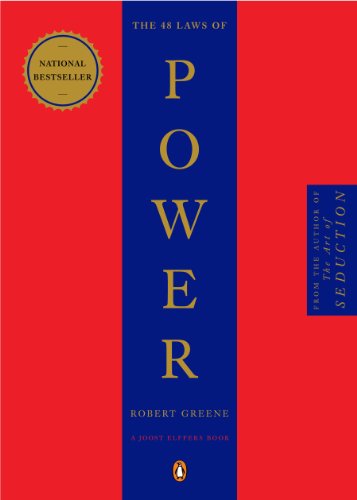

This article is an excerpt from the Shortform summary of "The 48 Laws of Power" by Robert Greene. Shortform has the world's best summaries of books you should be reading.
Like this article? Sign up for a free trial here .
Overview of Law #35: Master the Art of Timing
Anticipate the ebb and flow of power. Recognize when the time is right, and align yourself with the right side. Be patient and wait for your moment when you know you’ll benefit in the long run. Master the art of timing. When it’s time to make your end move against an opponent, strike without hesitation.
Principles of Law 35
In the quest for power, timing is everything. To take advantage of changing fortunes, you need to recognize the moment to act. Constantly read the signs and ally yourself with the right side. But be ready to switch again right before the pendulum swings.
According to Law 35 of the 48 Laws of Power, to survive and thrive while others are swept away, apply these principles:
- Recognize change in the air: Be alert to the undercurrent as well as what’s happening around the edges of society. Rather than aligning with a crumbling past, look for the new leaders and movements to join.
- Anticipate the reaction: When a new movement gathers momentum or a new power takes the throne, anticipate a reactionary wave and be ready to ride it.
- Be patient and keep your cool: When things get chaotic, keep a low profile and play for time so you can see the right moment when it comes again.
You can master the art of timing in three ways:
Take the Long View
One way to apply Law 35 of the 48 Laws of Power is to take the long view. There’s a time frame that stretches years ahead and should be viewed with an eye to opportunity. Have a defensive strategy and play a patient, waiting game.
Waiting requires controlling your emotions and those of your colleagues who might get impatient and push you to act at the wrong time. It’s better to let your rivals rush to act, if you know they’ll fail. You can wait and pick up the pieces. In the 17th century, General Ieyasu of Japan knew that invading Korea would be a disaster. He simply waited while the emperor launched an invasion against his advice, which indeed failed. It took years, but when the emperor fell Ieyasu seized power. Ieyasu mastered the art of timing.
Taking the long view has several advantages:
- When you’re not in immediate or crisis mode, you’re more clear-eyed and can see farther into the future.
- You’ll be able to resist others’ intentional provocations.
- You can be more flexible and able to take advantage of opportunities along the way that you would miss by rushing.
- You can be methodical, completing each step properly before moving to the next.
- When making long-range decisions, you’ll be less driven by emotion.
Force Your Opponent’s Hand
Another principle of Law 35 of the 48 Laws of Power is to force your opponent’s hand. There is a short, immediate time frame in which you can act offensively to upset the timing of your opponents.
The Turkish sultan Mehmed distracted Hungary from noticing he was vulnerable to attack while he battled another foe. Mehmed did this by inviting Hungarian officials to negotiations, then repeatedly postponing the meetings after they arrived. They waited, on his terms, until he finally returned from battle and canceled the whole thing.
In contrast to making your opponents wait, you can make them hurry. You can start dealing with someone slowly, then suddenly speed things up: Demand a decision or set an unrealistic deadline. Under pressure, they’re likely to make mistakes.
Salespeople use this technique by telling you that someone else is interested in the item you’re thinking of buying, so you’d better put money down right away. This is another way to master the art of timing.
Finish the Job
The third step to Law 35 of the 48 Laws of Power is to finish the job. There’s a specific moment when you need to execute your plan, forcefully and without hesitation. Patience has its place, but when it’s time to act, you must act, suddenly pouncing on your opponent and ending the game conclusively.
Putting Law 35 to Work
Here is an example of how to apply Law 35 of the 48 Laws of Power: Joseph Fouche, who served as a key official and chief of police under France’s top leaders including Robespierre and Napoleon, had an uncanny ability to read the chaotic times, align himself with the latest leaders, and avoid getting caught up in retribution for the crimes of the leaders who fell. He also knew when to keep a low profile and wait.
Exceptions to Law 35
Are there any exceptions to Law 35 of the 48 Laws of Power? Should you ever not master the art of timing? There’s nothing to be gained by ignoring time and going with the flow. You need to be in control.
———End of Preview———

Like what you just read? Read the rest of the world's best summary of "The 48 Laws of Power" at Shortform . Learn the book's critical concepts in 20 minutes or less .
Here's what you'll find in our full The 48 Laws of Power summary :
- Why you should never outshine your boss
- How to appear like a friend but behave like a spy
- The 6 rules you absolutely must not violate, if you want to be successful






